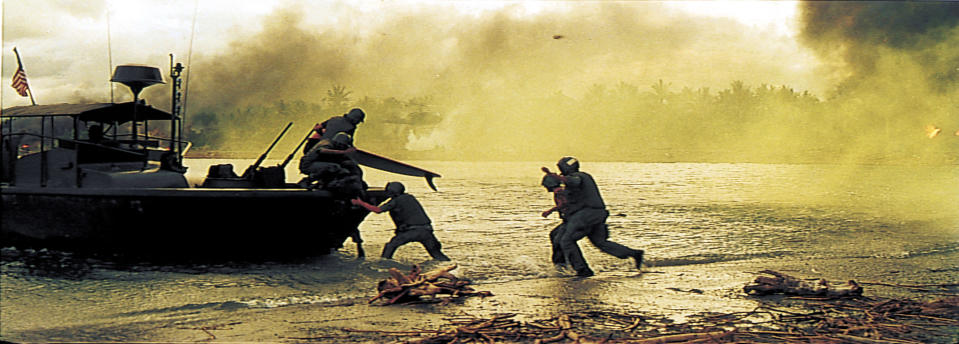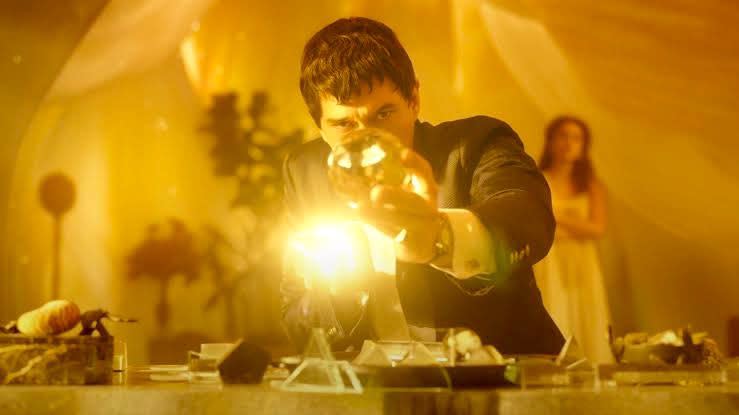Francis Ford Coppola’s Cannes Press Conference Gets Reflective: ‘When I Die, I Won’t Notice’

- Oops!Something went wrong.Please try again later.
- Oops!Something went wrong.Please try again later.
- Oops!Something went wrong.Please try again later.
- Oops!Something went wrong.Please try again later.
- Oops!Something went wrong.Please try again later.
Francis Ford Coppola has done well at Cannes, winning the Palme d’Or twice, for “The Conversation” (1974) and “Apocalypse Now” (1979), another film mired in controversy during production that sailed into release as a critical and box office success ($85 million worldwide), nominated for eight Oscars and winning two. Now the winemaker is back in Cannes with controversial “Megalopolis,” a 2 hour, 18 minute movie which he debuted at a gala premiere Thursday night to the usual sustained standing ovation (measured between seven and 10 minutes). There were a few boos at the press screening. He had dreamed of making the overstuffed extravaganza for 40 years since he wrote early versions of it in the ‘80s, but finally spent $120 million of his own money to produce and direct it.
Coppola faced drama on the set. He replaced VFX and art department members over clashes in filmmaking methods. Adam Driver, who plays a Robert Moses-style builder who believes in creating a utopia for the future, a stand-in for the director as creator, had to defend his director, saying he saw no problems. Now the director is under attack from The Guardian, which reports allegations of inappropriate behavior on the set.
More from IndieWire
Cannes 2024 Sales: A24 Acquires Rights to Ruben Öslund's New Film 'The Entertainment System Is Down'
The filmmaker faced the assembled media in a packed and supportive Friday press conference. Reviews were mixed, although many of the top press were impressed with the director’s extravagant bravado. (Here’s David Ehrlich’s review.) But many industry insiders did not think the movie was handled as well as it could have been. Coppola had fantasies of a $100 million sale to a studio. (Those were the days.) Reality set in when he screened the film for distributors who did not step up to the plate. Coppola said he would not go to Cannes without a distributor, then went to Cannes and followed the old foreign sales route. No problem there. But North America remains an issue.
When he came to Cannes with “Apocalypse Now” in 1979, Coppola remembered having a five-year-old Sofia Coppola on his shoulder. Young star Laurence Fishburne and his son Roman Coppola became friends back then, and remain so to this day. Fishburne returns to the Coppola fold in “Megalopolis.” After the Cannes standing ovation, Coppola described feeling “relief and joy. It was a crowning joy after all these years of having an idea and building it, a beautiful feeling.”

The actors described an improvisatory set experience. They admitted to feeling lost. But Fishburne, Giancarlo Esposito and Jon Voight praised the final film, thrilled with the way all the details finally came together. “He had a vision that bothered him not to express,” said Voight. “He had to do it, took every risk to do it, assembled brave actors, watching us, encouraging us, schooling us, worrying through things. It was magnificent to see all the things he was driven by coming forth.”
“The role of the artist is to illuminate contemporary life,” said Coppola, who always remembered Joseph Papp telling him this. “That’s what I think all artists should do.”
It was a tough shoot for Aubrey Plaza as delightfully conniving villainess Wow Platinum: “I had specific things I wanted and tried hard to get them,” she said. “It didn’t work out for me, but I tried to get them.”
Coppola credited Driver for helping him make choices of what to use and not what to lose in the editing room. They shared an approach to film that was like theater, Driver said. “That means being open to being wrong, it felt like experimental theater which made it feel rebellious and exciting.”

Coppola knew “Megalopolis” was not like anything else, he said, but he was paying for it, so he could do whatever he wanted. “Its not like other films that are out. I have no problem with the financial. My children have wonderful careers without a fortune. They don’t need a fortune. I still own Inglenook, we’re fine. Money doesn’t matter. What’s important is friends. They will never let you down. Money evaporates.”
Sitting next to his father, Roman Coppola, who is credited with second unit directing, said, “You seemed fearless. You were on the precipice of the building, and looked over.”
Known for re-editing his films, Coppola says he edits them because he owns them. “If there is a way I can make the film a little better I’ll try.” He has an idea for something he’d add to “The Godfather.” But he will never touch “The Conversation,” he said. He’s done with “Megalopolis,” though, “because I’ve started writing something else.”
Perhaps because he is grieving the recent loss of his wife Eleanor, Coppola may be feeling his 85 years. He has never been one to step away from a risk or challenge. “When I die, I got to do this,” he said. “I got to see my daughter win an Oscar, I made wine, and I got to make all the movies I did. When I die I won’t notice.” The room applauded.
Best of IndieWire
The Best LGBTQ Movies and TV Shows Streaming on Netflix Right Now
Guillermo del Toro's Favorite Movies: 54 Films the Director Wants You to See
Nicolas Winding Refn's Favorite Films: 37 Movies the Director Wants You to See
Sign up for Indiewire's Newsletter. For the latest news, follow us on Facebook, Twitter, and Instagram.

